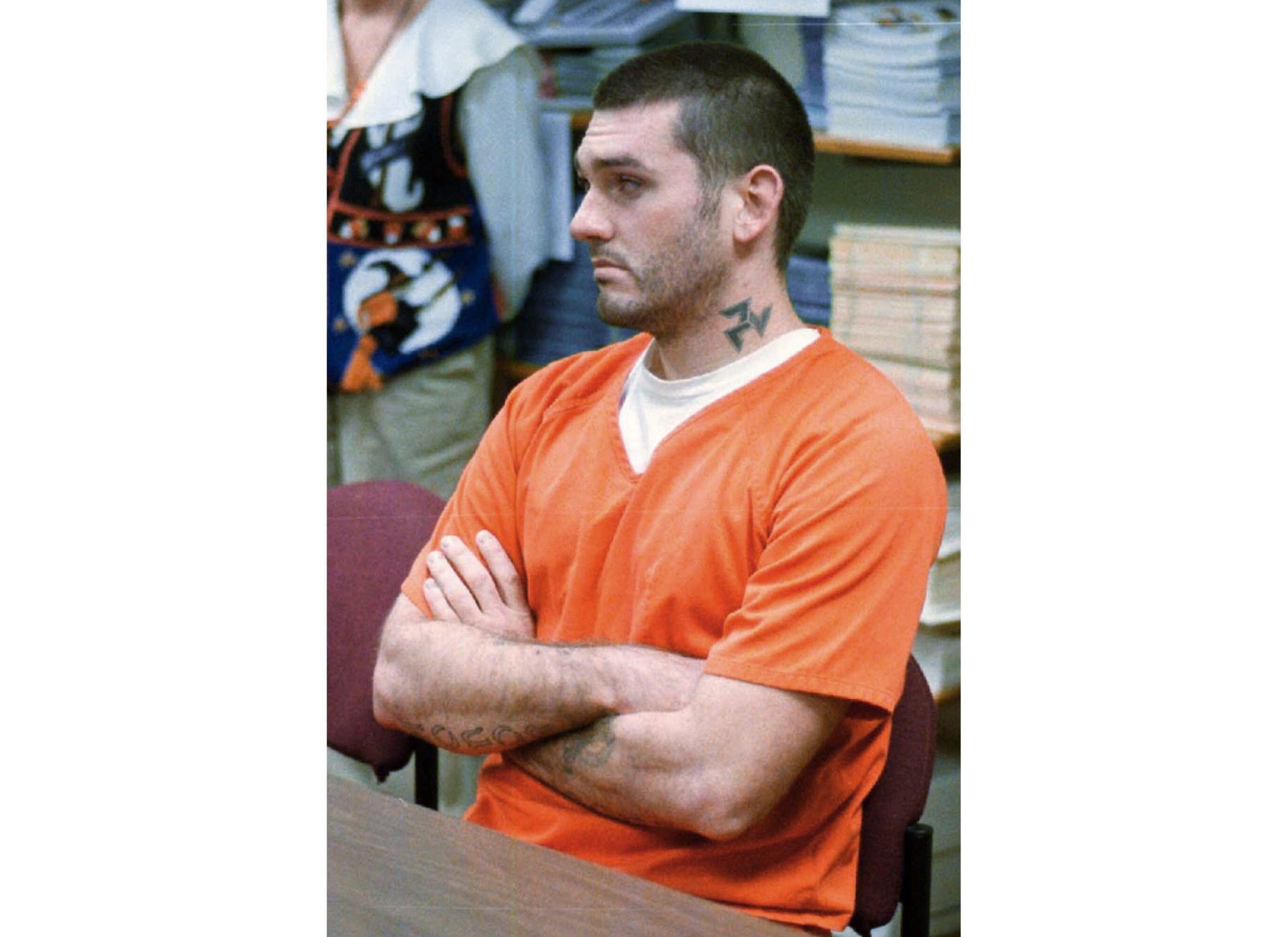WASHINGTON — The Justice Department plans to appeal a judge’s ruling that halted the first federal execution in nearly two decades after family members of the victims raised concerns they would be at high risk for coronavirus if they had to travel to attend it.
Daniel Lee, 47, had been scheduled to die by lethal injection on Monday. Lee, of Yukon, Oklahoma, was convicted in Arkansas of the 1996 killings of gun dealer William Mueller, his wife, Nancy, and her 8-year-old daughter, Sarah Powell.
But Chief District Judge Jane Magnus-Stinson ruled Friday that the execution would be put on hold because the family of the victims wanted to attend but were afraid of travelling during the coronavirus pandemic, which has killed more than 130,000 people and is ravaging prisons nationwide.
About an hour after the judge’s ruling, the Justice Department filed its notice to appeal to the 7th U.S. Circuit Court of Appeals and filed court papers asking the judge to stay the order pending appeal.
The Justice Department argues that it is likely to win an appeal. It contends that executions require extensive planning and co-ordination with other law enforcement officials and says dozens of staff members were already being brought in from other facilities ahead of Monday’s planned execution.
“These preparations cannot easily be undone,” the filing says.
Attorney General William Barr has said part of the reason to resume executions was to carry out the sentences imposed by the court and to deliver a sense of justice to the victims’ families, though relatives of those killed by Lee did not want that.
They have pleaded for years that Lee instead should receive the same life sentence as the ringleader in the deadly scheme. The relatives, including Earlene Branch Peterson, who lost her daughter and granddaughter in the killing, had urged the Trump administration not to move forward with the death sentence and had argued that their grief is compounded by the push to execute Lee in the middle of a pandemic.
“The harm to Ms. Peterson, for example, is being forced to choose whether being present for the execution of a man responsible for the death of her daughter and granddaughter is worth defying her doctor’s orders and risking her own life,” the judge wrote.
The injunction delays the execution until there is no longer such an emergency. The court order applies only to Lee’s execution and does not halt two other executions that are scheduled for later next week.
The decision to proceed with the executions had been criticized as a dangerous and political move. Critics argue that the government is creating an unnecessary and manufactured urgency around a topic that isn’t high on the list of American concerns right now.
Chevie Kehoe, whom prosecutors described as the ringleader, recruited Lee in 1995 for his white supremacist organization. Two years later, they were arrested for the killings of the Muellers and Sarah in Tilly, Arkansas, about 75 miles (120 kilometres) northwest of Little Rock. At their 1999 trial, prosecutors said Kehoe, of Colville, Washington, and Lee stole guns and $50,000 in cash from the Muellers as part of their plan to establish a nation of only white people.
Lee’s attorneys also cite evidence from his trial that Kehoe actually killed Sarah.
The executions appeared set to happen following a Supreme Court decision refusing to block them and a lower court affirming the ruling. It’s not clear what will happen with the other scheduled executions, which are scheduled next week for Wednesday and Friday.
Wesley Ira Purkey, of Kansas, who raped and murdered a 16-year-old girl and killed an 80-year-old woman, is scheduled to die Wednesday. Dustin Lee Honken, who killed five people in Iowa, including two children, is scheduled to be executed Friday.
Keith Dwayne Nelson, scheduled to be executed in August, was convicted of kidnapping a 10-year-old girl while she was rollerblading in front of her Kansas home, raping her in a forest behind a church and then strangling her.
___
DeMillo reported from Little Rock, Ark.
Michael Balsamo, Colleen Long And Andrew Demillo, The Associated Press












